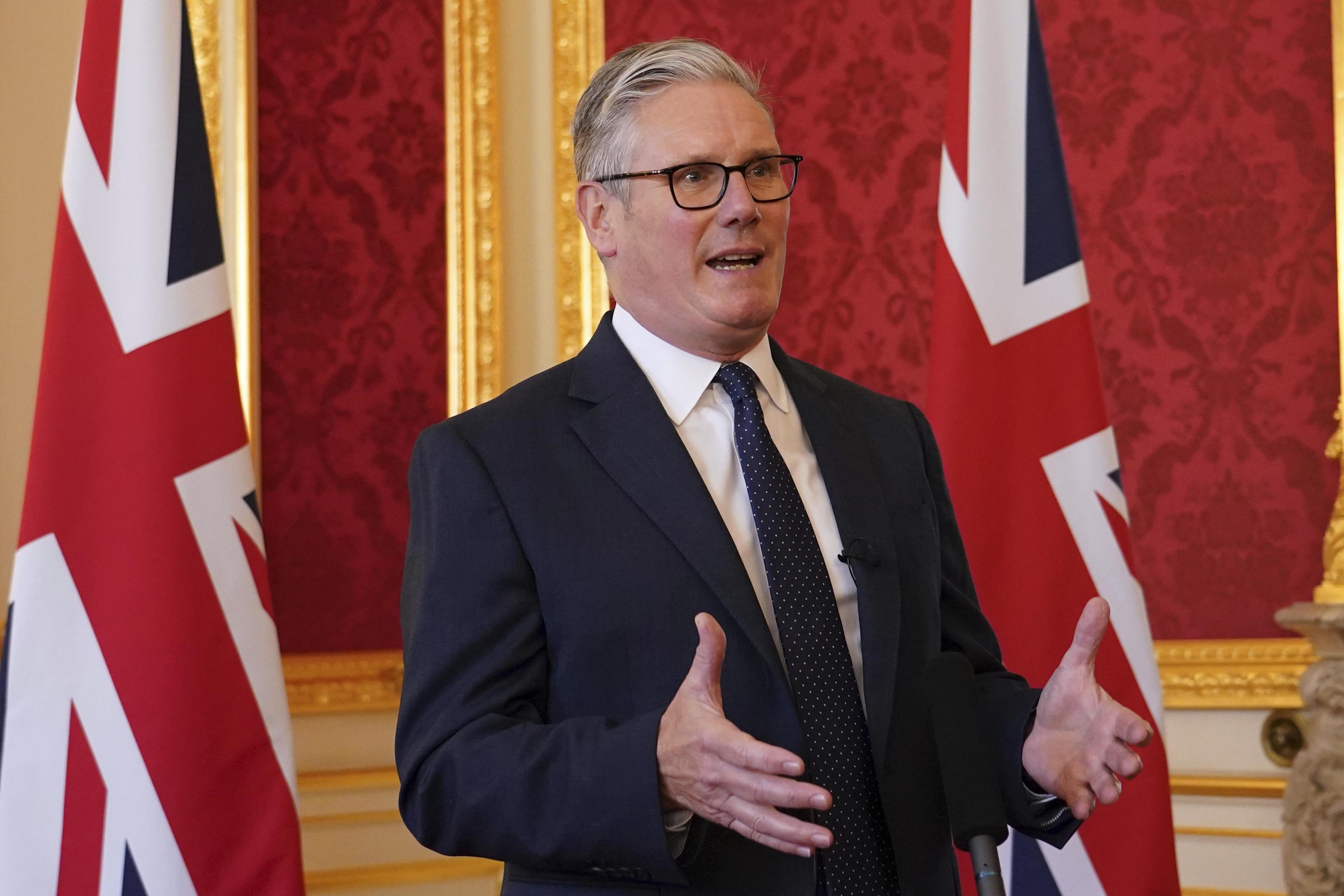The Governments of London, Ottawa, Canberra, and Lisbon have recognized the State of Palestine this Sunday. The proclamation, although expected, carries significant symbolic weight. United Kingdom and Canada are the only two G-7 members to have made this decision. The recognition comes exactly 48 hours before the speeches of heads of state and government at the United Nations General Assembly in New York, an event that this year the Palestinian leader Abu Mazen will not be able to attend because the United States, in an unprecedented action in the history of the United Nations, has denied him an entry visa.
The first three countries are also, along with Israel, the United States' closest allies in the world, sharing intelligence through the network known as Five Eyes (which also includes New Zealand). The UK and the US also collaborate on nuclear weapons development, with Australia expected to do so soon.
With this decision, the number of UN members recognizing the Palestinian State rises to 151, representing 77.7% of the organization. This week, France will also join in the recognition, meaning that four of the five veto-wielding countries in the UN Security Council will have recognized Palestine. The only country that has not done so and flatly refuses to is the United States. Germany, the Netherlands, Italy, Japan, the Baltic countries, and New Zealand also do not recognize Palestine.
British Prime Minister Keir Starmer, upon announcing the decision, stated that with it, "we revive hope for peace and a two-state solution", a concept opposed by the ruling party in Israel, Likud, as well as the Government of Donald Trump. The idea that this recognition is aimed at creating two states was also explicitly mentioned by the Canadian Prime Minister, liberal Mark Carney, and the Australian Prime Minister, Labor's Anthony Albanese. Both Carney and Albanese were elected in their respective countries largely in rejection of Trump.
The two-state solution - one Israeli and one Palestinian, presumably consisting of Gaza and the West Bank - has been pursued unsuccessfully for exactly 32 years since the signing of the Oslo Accords.
The Israeli government has tried to link Starmer to Islamist groups and indirectly to the Muslim community in the UK, an argument that the US Vice President, JD Vance, hinted at a year ago. Tel Aviv has stated that the recognition "is nothing but a reward to Hamas jihadists, who feel more supported by their partners in the Muslim Brotherhood in the UK." The Muslim Brotherhood is an Islamist group whose ideology is embraced by Hamas.
Israeli Prime Minister Benjamin Netanyahu reacted to the news with a firm statement: "There will be no Palestinian state", asserting that this decision is a "great reward to terrorism." "And I have another message for you: that is not going to happen. A Palestinian state will not be created west of the Jordan River," the Prime Minister stated in a release on Sunday. Israel's response will be announced, according to Netanyahu, upon his return from the United States.
The families of those kidnapped by Hamas have also criticized Starmer, stating that the recognition only strengthens Hamas. The terrorist group holds around 48 hostages in captivity for almost two years, of whom more than half may have died in the war that erupted when they attacked Israel on October 7, 2023, with a wave of bombings that resulted in over 2,800 deaths, including about 1,200 Israelis and 1,600 terrorists.
Since then, Israel has invaded Gaza, in a conflict where, according to Gaza authorities, 62,000 people have died in the enclave, which has a population of 1.9 million. A study published in the scientific journal The Lancet suggests the actual number is much higher. Nearly 500 Israeli soldiers have died in the war, in addition to 329 casualties on October 7.
The decision to recognize the State of Palestine will likely be accompanied by new sanctions against the Hamas terrorist group.
Starmer had already announced in July that he would recognize Palestine if certain conditions were not met, including a ceasefire in Gaza and the establishment of negotiations for a lasting peace. The war has continued, with Israel entering Gaza, where there is a severe humanitarian crisis, and Jewish settlers expanding the occupation of the West Bank. Hamas, on the other hand, still holds some of the Israeli hostages it captured two years ago.
The British Prime Minister waited until the conclusion of Donald Trump's State visit to the UK to announce the recognition. According to US President Donald Trump, the Palestinian issue is "one of the few things we disagree on". Starmer has faced harsh criticism from the left wing of his party for his stance on the Gaza conflict, where his critics have deemed him excessively pro-Israel.
